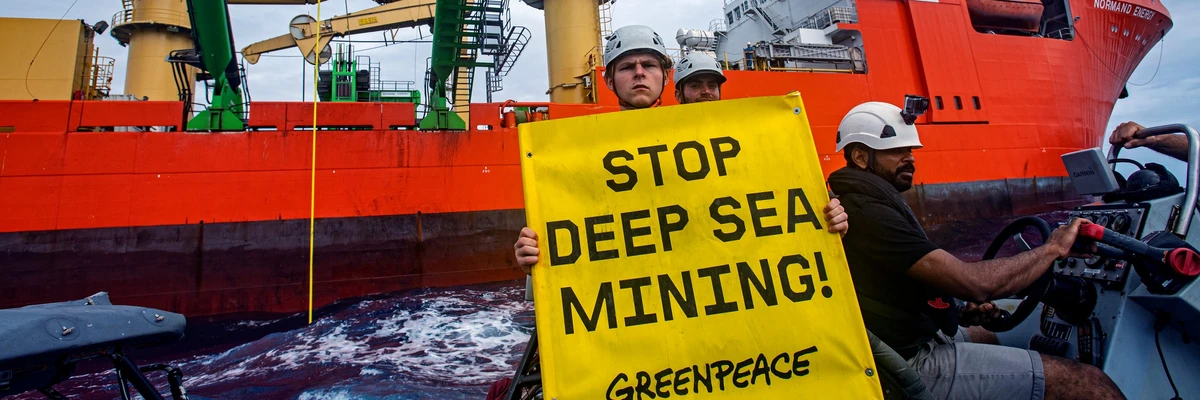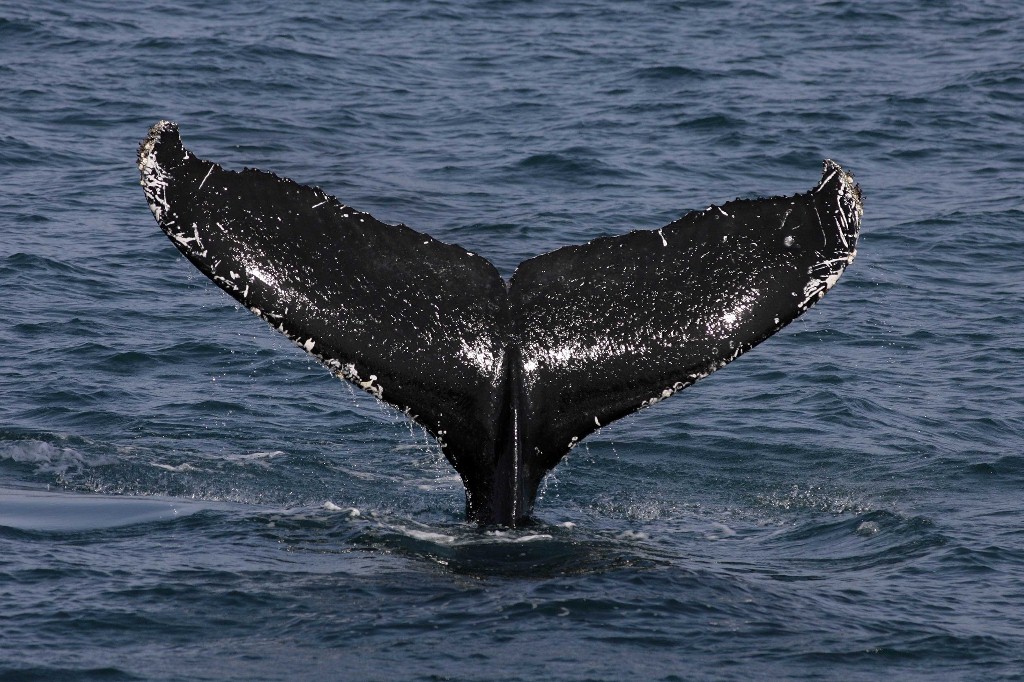Court confirms Greenpeace right to peaceful protest as activists’ 200 hour long protest against deep sea mining in the Pacific continues
Amsterdam, The Netherlands — A Dutch court has largely rejected a request by a deep seabed mining company to issue an injunction against protest by Greenpeace International, stating that it is “understandable” the organisation has resorted to direct action in the face of the “possibly very serious consequences” of the company’s plans.

In the case brought by NORI, a wholly-owned subsidiary of The Metals Company (TMC), the judgement states that Greenpeace International’s climbers who were occupying the vessel’s stern crane must disembark, but denies NORI’s request to keep Greenpeace activists from being within a 500 metre radius of MV COCO. The court decision comes after nearly 200 hours of peaceful protest by Greenpeace International activists against the MV COCO, which is collecting data for TMC as part of its drive to file the first-ever deep sea mining application next year.
“This is without question a massive setback for the deep sea mining industry. The Dutch court not only affirmed Greenpeace’s right to protest but also agreed that nodule mining is a highly controversial activity. The Metals Company has never been interested in scrutiny and they can’t stand that Greenpeace is watching and opposing them at every turn. Our activists are speaking the truth to destructive companies like TMC that are only out for their own profit, at huge cost to us all. We are determined to keep bringing this dangerous industry to public attention and will continue to disrupt its plans”, said Mads Christensen, Executive Director of Greenpeace International.
After five days of a non-stop kayak activity around the MV COCO, the vessel was safely climbed by five Greenpeace International activists on 25 November. Activists aboard the Greenpeace ship Arctic Sunrise took turns occupying the vessel’s stern crane to peacefully draw attention to the demand that TMC stop its deep sea mining exploration activities and drop its destructive plans in one of the world’s last untouched ecosystems. NORI claims the protest has been costing it 1M Euros a day.
The Dutch court denied NORI’s request for an injunction to keep Greenpeace activists from being within a 500 metre radius of COCO, a call that was repeated by the International Seabed Authority Secretary-General but which the judge described as ‘not an enforceable measure’.
Greenpeace International climbers descended on 30 November, but the 200-hour ongoing peaceful protest continues.
“The ISA Secretariat should learn from Greenpeace International activists as an example of a bold fight back against the destruction of this still unknown ecosystem. The power of the global movement against deep sea mining is growing, and is undimmed by corporate efforts and behind the scene’s agreements to limit protest. Brave action across the world by people standing up for what is right will stop deep sea mining”, said Greenpeace International Stop Deep Sea Mining campaigner Louisa Casson, aboard the Arctic Sunrise.
Greenpeace International activist Sofia Castellanos said: “We are standing up against the first ever deep sea mining application that TMC are trying to rush through against scientific warnings and political opposition of 24 countries calling for a moratorium. We will continue to protest every time TMC tries to push forward this dangerous industry, for the sake of our oceans and the rich and mysterious life of the deep sea.”

